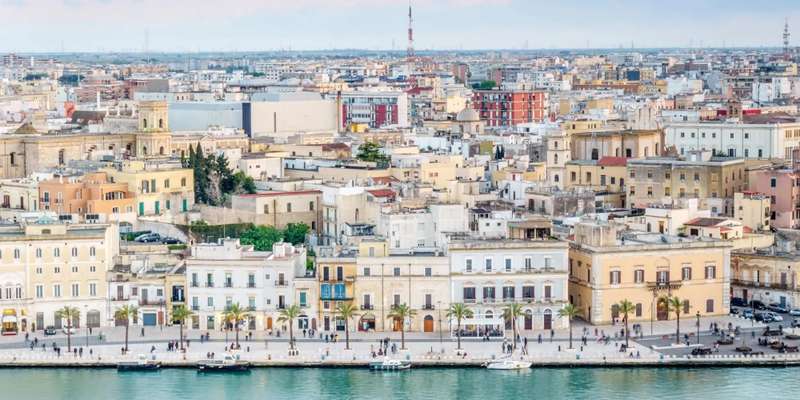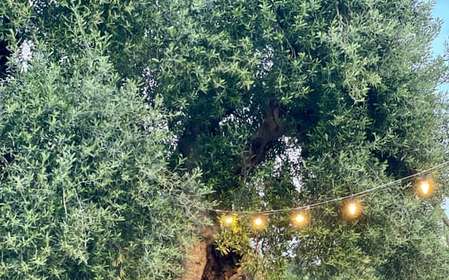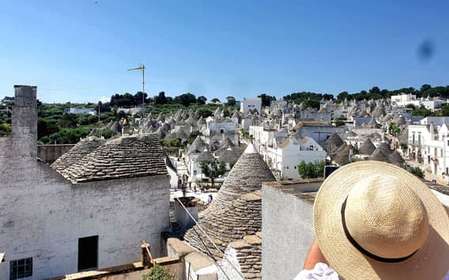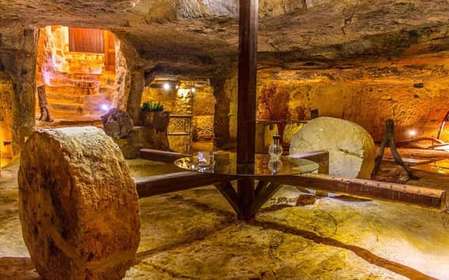- Home
- Useful Tips
- How to enjoy eco-friendly...
Traveling sustainably in Brindisi often feels like an impossible challenge. Between limited public transport options and a lack of clear information about eco-friendly businesses, even environmentally conscious travelers end up compromising their values. Recent surveys show 68% of visitors want to reduce their carbon footprint while exploring Puglia, but fewer than 20% succeed due to language barriers and greenwashing. The frustration mounts when authentic local experiences get overshadowed by mass tourism offerings. Wandering through Brindisi's historic center, you might wonder how to enjoy its Baroque architecture and Adriatic coastline without contributing to overtourism or plastic pollution. The solution lies in connecting with Brindisi's growing sustainability movement – if you know where to look.


Navigating Brindisi without a rental car
The absence of reliable public transport deters many eco-conscious travelers, forcing them into car rentals that contradict sustainable values. Brindisi's compact historic center actually makes walking ideal for exploring key sites like the Roman columns and Swabian Castle. For longer distances, the city's bike-sharing program offers electric bicycles at strategic points near the train station and waterfront. Local cyclists recommend the scenic route along Lungomare Regina Margherita during sunset, when coastal breezes mitigate the summer heat. Regional trains connect Brindisi to lesser-known gems like Ostuni and Lecce with minimal carbon footprint – purchase combined mobility tickets covering buses and bikes at the Brindisi Centrale ticket office. Early risers can join the 'walking bus' initiative where locals guide groups on foot to morning markets.
Identifying truly sustainable accommodations
Greenwashing plagues Brindisi's hospitality sector, with countless hotels claiming environmental credentials. Authentic eco-stays share concrete details: solar panel usage, rainwater harvesting systems, and partnerships with organic farms. The distinctive masserie (fortified farmhouses) surrounding Brindisi often provide the most genuine sustainable experiences, many preserving ancient dry-stone construction while offering farm-to-table dining. Look for the Legambiente Turismo certification – only 12 properties in the province meet this rigorous standard. Urban alternatives include family-run B&Bs participating in the 'Brindisi Plastic Free' initiative, where guests receive refillable water bottles and maps to public fountains. Some innovative hosts even offer carbon-offset programs through local reforestation projects in the nearby Bosco di Santa Teresa.
Dining that supports local ecosystems
Brindisi's culinary scene tempts visitors with seafood and orecchiette pasta, but sustainable choices require discernment. Seek out Slow Food Presidium restaurants like Osteria del Porto, where chefs source endangered local ingredients like the Carosello melon from small-scale producers. The Mercato Coperto hosts morning workshops teaching visitors to identify seasonal produce – June's fava beans and October's sea urchins tell Brindisi's agricultural story. For a zero-waste experience, Trattoria Uccio offers 'no menu' meals using that day's unsold market ingredients. Fishermen at the Costa Morena dock often welcome visitors to join sustainable fishing expeditions using traditional tramaglio nets, followed by cooking lessons on the beach.
Low-impact exploration of coastal treasures
Brindisi's coastline faces overtourism pressures, especially around popular beaches like Lido Risorgimento. Eco-alternatives exist when you venture slightly further. The Torre Guaceto Marine Reserve offers guided snorkeling tours revealing seagrass meadows crucial for carbon sequestration – visit in shoulder season to avoid crowds. Kayak rentals from Spiaggia di Punta Penne let you explore hidden coves inaccessible to motorboats. For a unique perspective, join the citizen science program monitoring loggerhead turtle nests along the dunes. Evening passeggiate (strolls) along the lesser-known Sentiero delle Querce trail combine sunset views with interpretive signs about the Mediterranean maquis ecosystem. These experiences not only minimize environmental impact but often cost less than commercial tours while providing deeper connections to Puglia's natural heritage.



